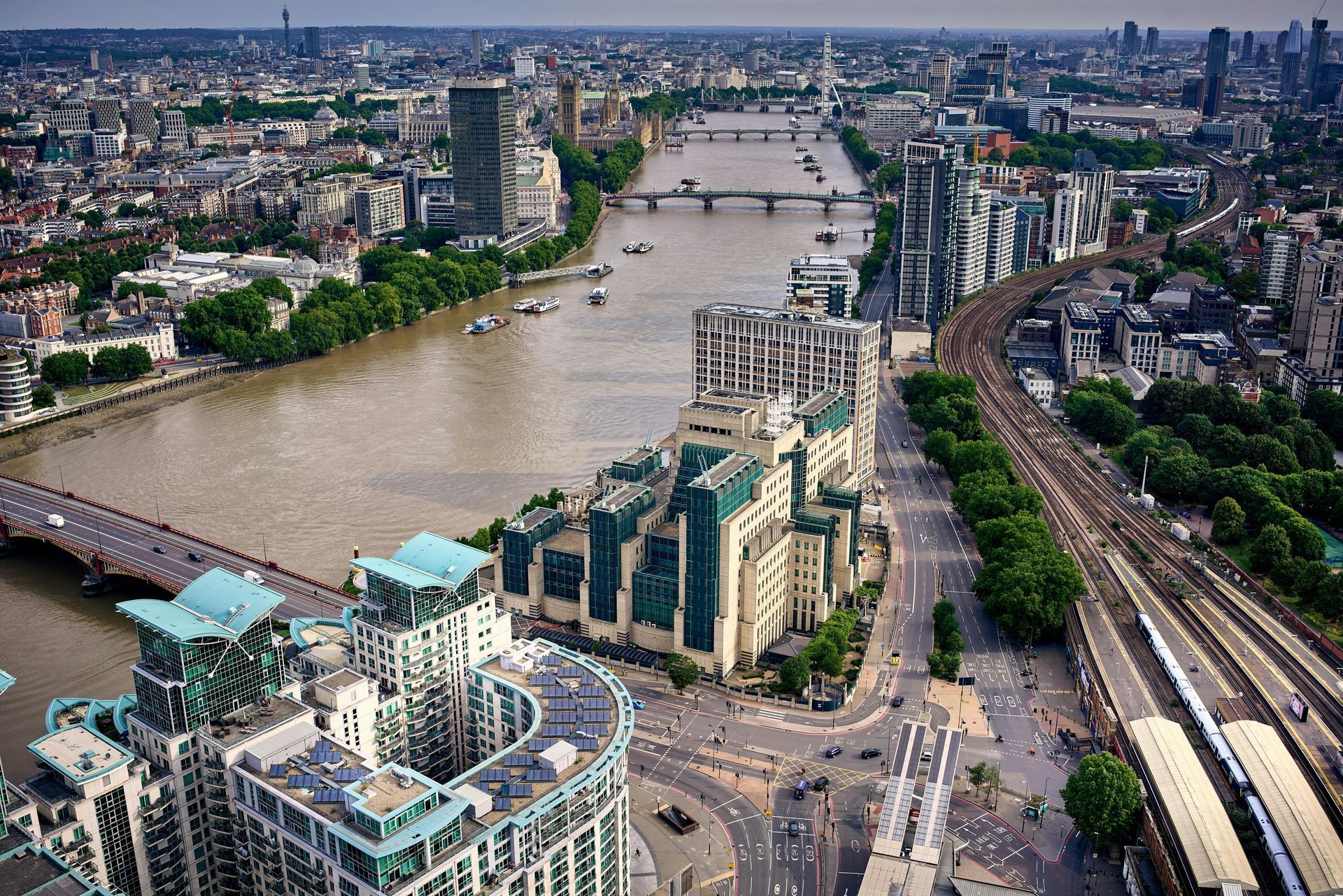UAE Residency Visas - FAQs
Andy Wood • November 19, 2024

Who may apply for an UAE residence visa?
Each residency option has specific eligibility criteria that most qualifying individuals meet.
Contact Us
Call Us
• Investing in Real Estate or Businesses
• Establishing a New Company For Entrepreneurs
• Sponsored Employees by UAE-Based Companies
• Talent in fields like technology, medicine and the arts abound at UAE universities.
• Remote workers and freelancers in certain professions as well as retirees meeting certain criteria may qualify.
Mosaic Chambers can assist your family members who are UAE nationals or residents with selecting the appropriate visa route that is tailored to meet their goals and profiles.
What types of UAE residency visas are there?
UAE provides its residents with various types of visas to suit their individual needs.
• An investor visa is intended for those investing in businesses or real estate.
• Employment visa - Professionals working in the UAE typically need an employment visa sponsored by their employer in order to work there legally and securely. Freelance visa - Independent professionals employed in fields like media, technology or education may qualify for this type of visa.
• Talent visa - Individuals with extraordinary talents in arts, sciences or sports.
• Student Visa: Issued to UAE-based universities or students pursuing postgraduate programs.
• Retirement Visa -- Open to retirees who meet certain financial criteria.
• Family Visa -- Residents may sponsor immediate family members for permanent residency status.
How do I acquire a UAE residence visa through real estate investment?
Real estate investment is an increasingly popular way of gaining residency in the UAE.
Investments must reach a certain minimum threshold to be eligible, which typically ranges between AED 750,000 and 1 million depending on which emirate the investment falls in.
Investors can even sponsor family members using this form of visa.
How does an entrepreneur apply for a UAE residency Visa?
Establishing a business in the UAE can help entrepreneurs obtain residency visas.
There are two options for doing this; free zones provide ownership rights to foreigners while mainland companies gain access to local markets.
How do I acquire an employment-based UAE residency Visa?
Professionals working for UAE registered employers may qualify to apply for employment-based residence visas sponsored by their companies, which also provides initial application and renewal support for these visas.
Their work permit and residence permit will both depend on their employment status.
How do I acquire a UAE residency visa as a specialist talent?
UAE provides long-term residency visas to professionals with unique skills.
This visa can be issued to professionals working in healthcare, science and engineering, the arts or other related areas.
A talent visa provides professionals with an opportunity to contribute towards UAE's innovation and growth.
How do I apply for an UAE residency visa as a student?
Student's from outside of UAE accepted to an institution can apply for and be sponsored for an international student visa, which can be renewed each year until completion of study.
How do freelancers or remote workers apply for an UAE resident Visa?
UAE authorities recently introduced a visa specifically tailored for freelancers working in media, education and technology industries.
This permit allows individuals to work remotely or independently from any location within UAE borders.
How do retirees acquire an UAE residence visa?
Retirees who wish to spend their golden years in UAE may qualify for a retirement visa by meeting certain financial criteria such as having at least an annual income or significant savings.
Once approved, senior citizens living here can enjoy access to healthcare, safety, and an excellent quality of life.
How can family members apply for an UAE residence Visa?
Residents in the UAE can sponsor immediate family members such as spouses, children and in some cases parents.
To qualify as the primary sponsor of his or her relatives in need of sponsorship, the primary sponsor must meet a certain income threshold while also providing evidence of their relationship.
Entry permits Vs. residence Visas: What's the difference?
A limited entry permit grants individuals entry to the UAE for business or tourism purposes; while a residence visa allows a longer-term stay.
When planning your move to the UAE, it is important to understand both types of permits as it could potentially impact how quickly an ID card can be issued to you. Learn How to Get an Emirates ID
Emirates IDs are mandatory identification cards required of all UAE residents and provide access to government, banking and healthcare services.
Residents obtain this ID through biometric verification as part of the visa application process.
What are the re-entry rules for residence visa holders in UAE?
UAE residents traveling outside of their residence country should be aware that special re-entry regulations exist in order to maintain residency status, since extended absences could compromise its validity and impact its validity as an entry visa.
UAE residency Visas – FAQs - Conclusion
At Mosaic Chambers, we offer expert assistance with each pathway to UAE residency that best meets the individual's circumstances.
No matter if it's for an entrepreneur, employee, retiree or family member; our team is there every step of the way ensuring a smooth transition into life in UAE.
Final thoughts
If you any queries on this FAQs, or would like to discuss your position with one of our advisers, then please get in touch.

Introduction More wealthy UK residents are exploring life overseas ahead of the 2026/27 tax year. Higher UK taxes, political uncertainty and a desire for a different way of living are all pushing people to look at alternatives. Four destinations stand out for high-net-worth UK individuals as at late 2025: 1. United Arab Emirates (Dubai) 2. Portugal 3. Switzerland 4. Malta Each offers a different blend of tax advantages, residency options and lifestyle. United Arab Emirates (Dubai) - Dubai is now the default choice for many UK entrepreneurs and professionals. Tax For individuals, there is currently no personal income tax on salaries, bonuses or most investment income, and no local capital gains or inheritance tax regime for individuals. There is VAT and a developing corporate tax regime, but personal tax remains far lighter than in the UK. The UK–UAE double tax treaty helps reduce the risk of the same income being taxed twice and needs to be considered alongside UK residence rules. Residency Common routes for UK nationals include: Employer- or company-sponsored residence visas Remote-worker visas for those employed or self-employed abroad Long-term “golden” style visas linked to investment, property or professional status Retirement options for over-55s. (All require private health insurance and periodic renewal.) Lifestyle Dubai offers a high standard of living, excellent connectivity and a large, well-established British community. Housing and schooling are expensive and the lifestyle can encourage overspending, but for many the tax position and opportunity outweigh the costs. Best for: Maximising net income and building or scaling a business in a dynamic, international city. Portugal - Portugal appeals to those who want EU residency, a milder climate and a slower pace of life. Tax The old NHR regime has closed to new applicants and been replaced by a newer incentive framework (often referred to as IFICI) aimed at certain professionals and activities. The UK–Portugal tax treaty reduces double taxation, and Portugal does not operate a classic wealth tax, though property-related charges can apply. (It's signed and ratified but not yet fully in force as of early 2026, which may slightly affect immediate tax planning). Residency Post-Brexit, common routes for UK nationals include: D7 visa – for those with sufficient passive income (pensions, investments, rentals). D8 / Digital Nomad visa – for remote workers with qualifying income from abroad. Work and other residence visas tied to employment or specific skills. These can lead to long-term residence and, ultimately, citizenship if physical presence and integration tests are met. Lifestyle Cost of living is generally below the UK (though higher in central Lisbon and the Algarve), English is widely spoken in cities, and the public and private healthcare systems are well regarded. There are large British and wider international communities. Best for: Those wanting EU residence, good quality of life and a balance of tax and lifestyle advantages. Switzerland - Switzerland attracts UK families who prioritise security, discretion and top-tier services. Tax Tax is set at federal, cantonal and communal level, so overall rates vary widely by canton. Well-chosen cantons can be very competitive for both individuals and companies. Private capital gains are not generally taxed, but there is an annual wealth tax on net assets, with rules depending on location. For suitable non-working individuals, some cantons still offer lump-sum (forfait) taxation, where tax is based on living costs rather than worldwide income, subject to minimum levels and conditions. Residency As non-EU nationals, UK citizens use: B permits – time-limited residence, often linked to work L permits – short-term residence for specific assignments C permits – longer-term settlement after sustained residence and integration Wealthy retirees and non-working individuals may be able to obtain residence based on financial self-sufficiency and, in some cantons, lump-sum taxation. Lifestyle High costs are offset by excellent infrastructure, schools and healthcare (with compulsory private health insurance). International communities are strong in Zurich, Geneva and other cities, though social life can feel more formal than Southern Europe. Best for: Those seeking stability, discretion and first-class public services and education, rather than the lowest day-to-day costs. Malta - Malta is a compact EU state with a very familiar feel for UK nationals: English is an official language and the legal and business environment is comfortable for British professionals. Tax Malta’s tax system and UK–Malta treaty can be particularly attractive where you hold significant foreign-source income. Under the Global Residence Programme, qualifying individuals can pay a favourable flat rate on foreign income remitted to Malta, while foreign capital gains kept offshore are generally not taxed in Malta. There is no separate wealth tax and no classic inheritance tax, though duties may apply to certain Maltese assets. The separate “golden passport” (citizenship by investment) route has been struck down by the EU’s top court, but residence programmes remain available. Residency Options for UK citizens include: Employer-sponsored Single Permits combining work and residence The Global Residence Programme for financially self-sufficient individuals meeting property and minimum tax thresholds Digital-nomad-style visas for remote workers Long-term residence after several years of compliant stay Lifestyle Costs (especially rent and property) are typically lower than in the UK outside the most fashionable areas. English is widely used in government and business, healthcare is solid, and London is only a short flight away. Best for: Those wanting an English-speaking EU base with favourable treatment of foreign-source income and a tight-knit expat community. How to decide & next steps - All four countries can work extremely well for UK high-net-worth individuals, but for different profiles: Choose Dubai if your priority is low personal tax on active income and you are comfortable with a high-energy city. Choose Portugal if EU residency, climate and lifestyle matter as much as tax. Choose Switzerland if stability, education and healthcare are at the top of your list. Choose Malta if you want an English-speaking EU base with flexible options for foreign income. The right answer depends on your overall wealth, income mix, family plans and how tied you remain to the UK. If you would like bespoke, confidential advice on whether remaining UK-resident or relocating to Dubai, Portugal, Switzerland or Malta is the better strategy for your situation, you are welcome to get in touch to explore your options in detail.

